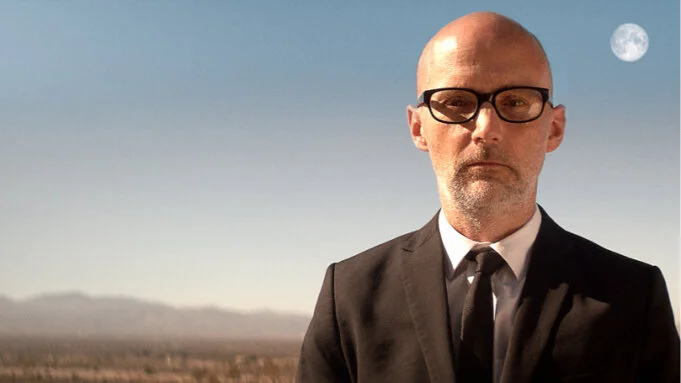Film review: Moby Doc takes a self-consciously strange look at fame and unhappiness
The musician unpacks stardom, addiction, and self-loathing with the help of puppets, drawings, and David Lynch
VIFF Connect streams Moby Doc from May 28 to June 24
“WHY IN the world would I want to make a documentary about myself?” Moby asks off the top of his new documentary.
It’s a question that will remain with you at the end of director Rob Gordon Bralver’s self-consciously weird Moby Doc. The film is fascinating to watch, but not always in ways that are intended. That’s because the musician born Richard Melville Hall remains, if possible, even more of an enigma at the end of the documentary than he is at the beginning. But trying to nail his identity down—is he self-loathing? Damaged? Emotionally arrested? Awkward? Arrogant? Brilliant?—will still be of interest for the masses who had Play on endless repeat 20 years ago.
Moby sets out to offer a warning to a culture that worships celebrity and wealth: in case you’ve never seen Behind the Music, fame doesn’t equal happiness.
His story is undeniably compelling. Painful childhood memories of growing up poor in Harlem are depicted here in the most dissociated ways possible: using handpuppets, Moby’s own crude drawings, animation sequences, and acted-out therapy sessions. In one of the strangest vignettes, a gang of his friends re-create the more dysfunctional moments as the “Childhood Trauma Re-Enactment Players”. Further distancing comes courtesy of the narration, spoken by the bald and bespectacled mixmaster into a phone, in grocery stores and on walks along viaducts. David Lynch even makes a few appearances to talk about Moby’s cultural impact, but not to much effect.
The former punk rocker and techno innovator had a childhood so marred by tragedy and neglect that he turned to pets for consolation. Lost and drifting in his late-teen years, he took up residence in an abandoned lock factory (no water, no heat) and started twiddling knobs on a Roland sequencer. His self-taught skills led to a gig DJing at hot New York City club Mars, and a totally unexpected number-one dance hit in Europe—the Twin Peaks-theme-tweaked “Go!”, glowingly hailed as “intelligent dance music”. Even more of a surprise was the blowout success of 1999’s Play, an album the self-flagellating artist was convinced would be a career-ending flop, but which gradually launched him into the stratosphere of stardom.
What Moby Doc exposes most, perhaps, is hubris. It’s the kind built by a 12-million-selling culture-defining juggernaut and videos with Gwen Stefani licking your head, and then torn down when each subsequent release draws diminishing returns. Moby cops to buying into cliched rock-star debauchery and all the sex and drugs that entailed; at least one encounter, horrifically, out-dirts anything in The Dirt. Using animation, the film’s most successful and revelatory scene depicts Moby at rock bottom—ironically at the pinnacle of his career—in one of the world’s most lavish hotel penthouses, alone, wasted, and suicidal.
What you won’t find here is any real excavation of the creative process. That’s most sorely missing when it comes to Play and its exhilarating mashup of early blues, gospel, techno, and other forms. We see Moby reliving his past hits in repeated clips from a live performance with Seattle’s Pacific Northwest Ballet Orchestra—a reminder that his music remains both timeless and important. In the context here, lyrics like “Porcelain”’s “To tell the truth/You never wanted me” take on a deeply sad new meaning that you could not have fully processed on the dance floor back in the day.
You also won’t see any reference to Natalie Portman, who famously disputed one of his memoirs’ creepy accounts of dating her.
Moby Doc makes you think of Nick Cave’s autobiographical film 20,000 Years on Earth, which also played with form and themes of fame and addiction. Even with some fictionalized segments, it reveals more of the man, his music, his soul, and his pain than anything in Moby Doc.
In the end, the difference may come down to self-awareness. In late life, when he doesn’t have to “pretend that I’m still young and relevant”, Moby sees that fame “corrupted and ruined” him. He’s found new meaning in the animal-rights movement and seems happy doodling all day by the pool at his Los Angeles home. But even when joyously jamming with the Flaming Lips at the end of Moby Doc, he's still a mystery--possibly still to himself.














